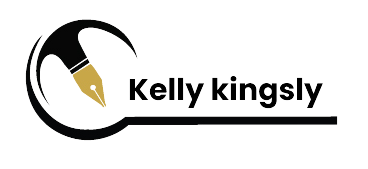The Douala Stock Exchange (DSX) in Cameroon and Its Discontents
Professor Alain Ndedi
International Council for Family Business; ISTG-AC; YENEPAD; Saint Monica University; University of Johannesburg; University of Pretoria; Charisma University
Yota Kuete
Saint Monica University
Professor Kelly Kingsly
Independent; Copperstone University ; Charisma university
Jules Banaken
Banaken Jules
Date Written: October 23, 2015 Download this paper
Abstract
Ndedi (2009) defines financial market as a market for the exchange of capital and credit, including the money markets and the capital markets. The author further asserts that the financial market is a place (physical or virtual) where people trade financial securities, commodities, and other fungible items of value at low transaction costs and at prices that reflect local supply and demand. Securities include stocks and bonds, and commodities include precious metals or agricultural goods. According to the author, financial market attracts funds from investors and channels them to corporations, they thus allow corporations to finance their operations and achieve growth. Money markets allow firms to borrow funds on a short term basis, while capital markets allow corporations to gain long-term funding to support expansion (known as maturity transformation). (Ndedi, 2012) Without financial markets, borrowers would have difficulty finding lenders themselves, and these structures are seen as platforms for economic prosperity of nations, especially in Africa. (Ndedi and Ijeoma, 2008) What about the Douala Stock Exchange in Cameroon?
Launched in 2001 and made the first trading on the 30th June 2006, the Douala Stock Exchange is a public limited company with a Board of Directors and capital of 1.8 billion francs CFA, distributed as follows: 63.7% by Banks and financial institutions, 23% by spin-offs from the State, and 13, 3% by insurance companies. The Douala Stock Exchange is the sole agent authorised to carry out stock exchange transactions and functions within the territory of the Republic of Cameroon.
Its principal functions are among others to create, organise and manage the stock market; to monitor and supervise the smooth running of negotiations on the stock market; to administer the negotiation of negotiable public stocks and securities (OTZ). The final function of the DSX is to establish the rules which regulate access to the market; admission of listed stocks; the organisation of transactions, the suspension of negotiations of one or several stocks; the recording and advertising of negotiations; the delivery of share certificates and settling of accounts; the custody of shares; and the invoicing and collection of commissions.
Unfortunately, almost fourteen years after its creation, the DSX is struggling to fulfill its noble objectives. To really understand the issue around this financial market, an empirical research was conducted among 20 business mangers acquainted with the activities of the institution. The data gathering consists of a questionnaire aiming at interrogating these managers on their reluctance and of their colleagues to trade at the DSX.
The findings have shown that despite financial liberalization and the emergence of new markets and institutions in Cameroon, unfortunately in the absence of adequate oversight and an adaptive regulatory structure, the DSX can only malfunction.
According to Chami, Fullenkamp and Sunil Sharma (2009), the development of the financial market occurs when market players are able to reach mutually acceptable compromises regarding the terms of financial transactions. Agents strike grand compromises, such as those between maturity and collateral, and between seniority and control, as well as myriad smaller ones. The failure of a financial market to develop is generally because the instrument traded does not meet the requirements of some of the players; and this is the case with the DSX.
The paper develops an appropriate strategy for sequencing the development of the DSX. It argues that instruments that require simpler and more easily verifiable compromises must be launched in the first place at the DSX. The paper also shows that the path of development will depend on economic, legal, political, institutional, and cultural factors; the framework that prompts policymakers to ask the right questions in diagnosing the deficiencies and hurdles. The paper finally provides guidance for designing suitable policies for the development and functioning of the Douala Stock Exchange that will contribute to the emergence of Cameroon by 2025. The paper concludes that when they function properly, financial markets allow the transfer of resources from savers to investors, and contribute to making the economy more robust to shocks by enabling risks to be allocated appropriately; something needed in Cameroon with the DSX.
Keywords: Douala Stock Exchange, Finance, Capital Market, Ndedi Alain
Suggested Citation: Ndedi, Alain Aime and Kuete, Yota and Kingsly, Professor kelly and Banaken, Jules, The Douala Stock Exchange (DSX) in Cameroon and Its Discontents (October 23, 2015). Available at SSRN: https://ssrn.com/abstract=2678897 or http://dx.doi.org/10.2139/ssrn.2678897
